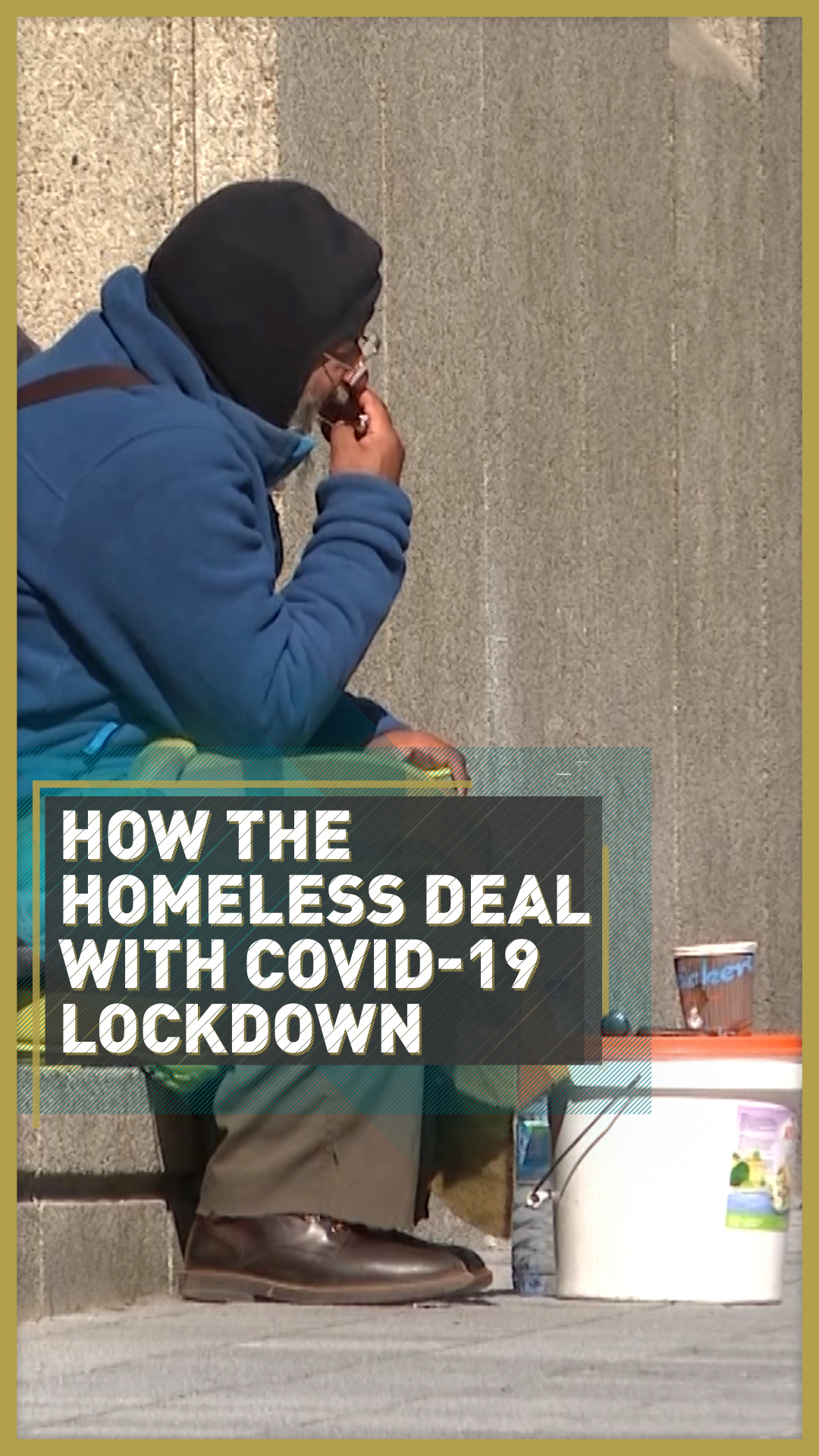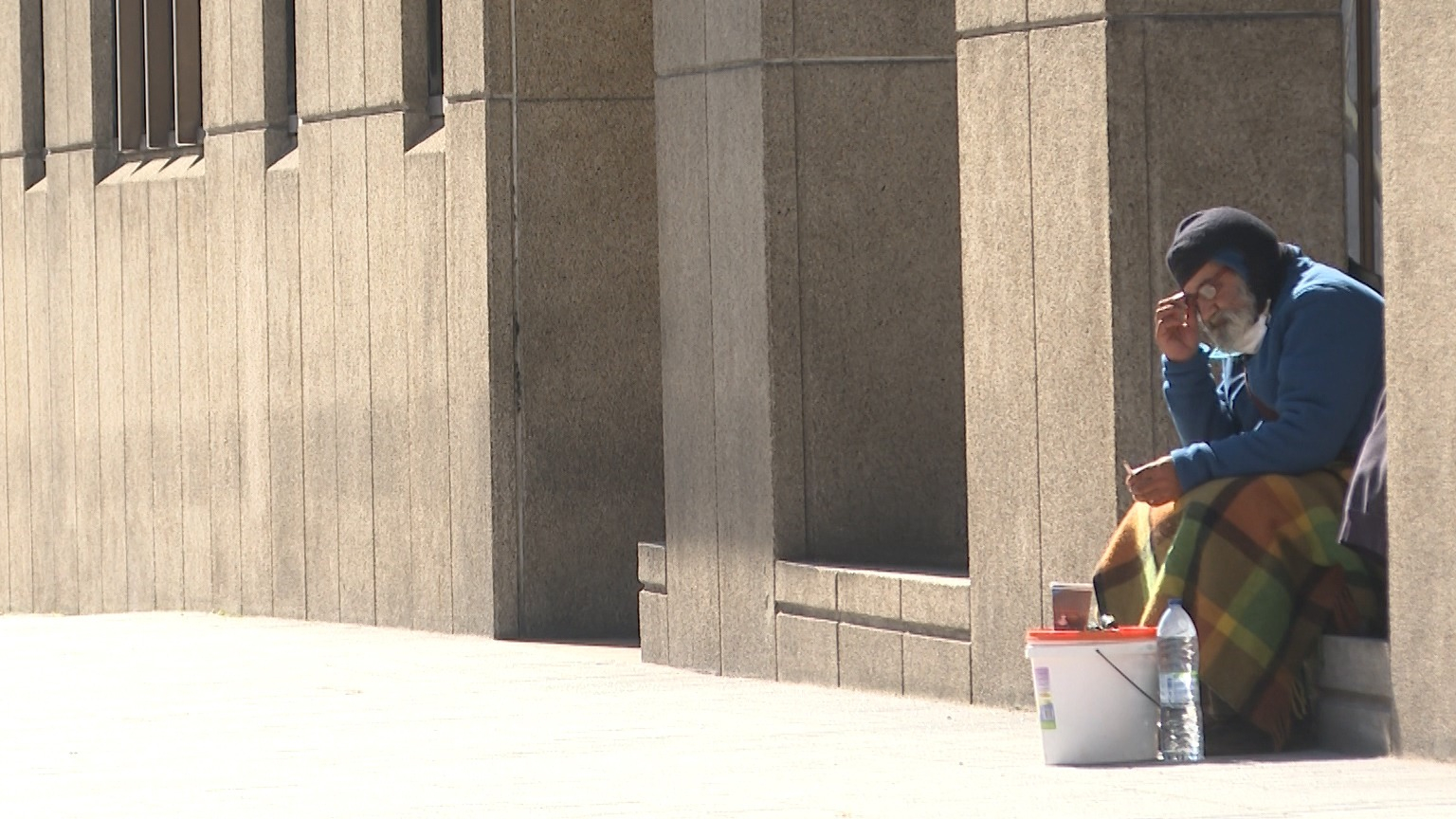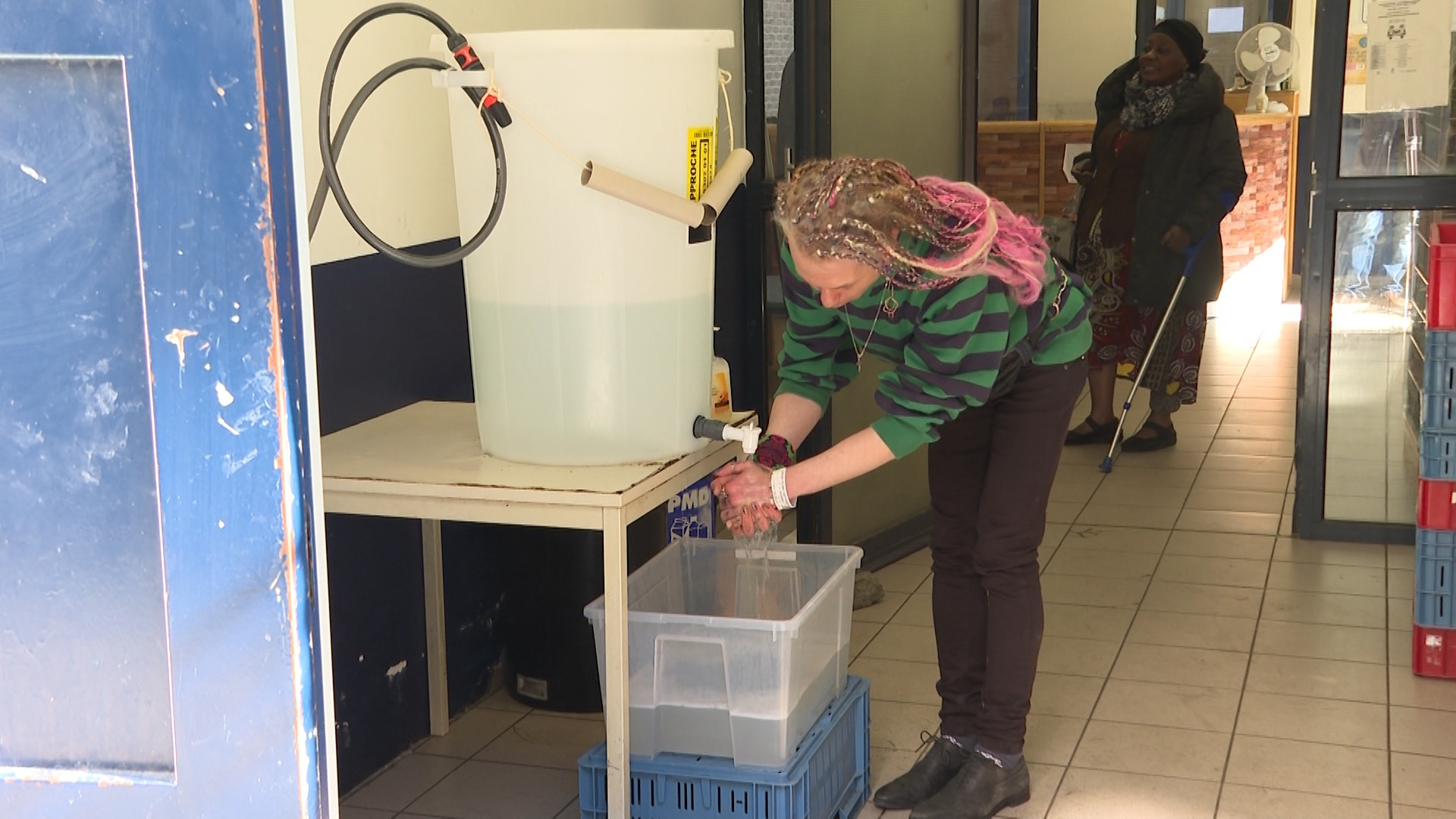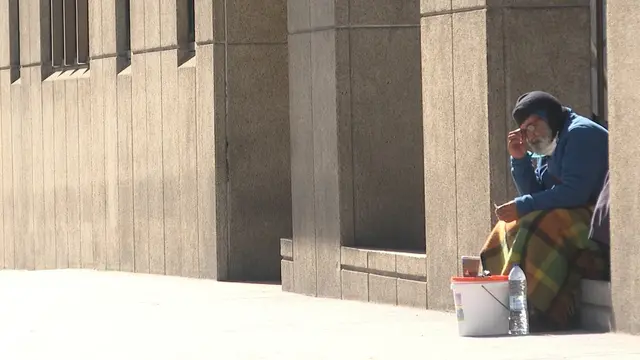02:37

A few years ago, Elvira Aliraje fled Albania and an abusive husband. The 32-year-old mother of two said her spouse would hit her in front of her children.
"I don't have contact with my family. I left everything. I left Albania and I came here," she says.
She has bounced around ever since. Antwerp first. Now Brussels. She was working at a local bar but she stopped taking her medication and the job disappeared. For the past nine months, she has been living at the Samusocial homeless shelter.
As governments across Europe order their citizens to stay indoors, that's just not an option for people like Elvira. She is one of the 4,000 people sleeping rough in the greater Brussels region. In the best of times the homeless are among society's most vulnerable. During the coronavirus crisis, their problems have multiplied.
"Now of course with COVID-19, we do have to refuse some people. But we do our best to be the nearest possible to the most vulnerable people," says Samusocial spokesperson Marie-Anne Robberecht.
"Homeless people are known to have several medical problems. And of course we have to care especially for them," She adds.

A homeless man in Brussels. /Toni Waterman/CGTN
People with underlying health problems are especially susceptible to the deadly effects of the disease. One homeless person staying at Samusocial has already tested positive, while another is awaiting results.
To manage contagion, the group recently opened an isolation center for suspected cases. Of the 19 beds available, eight were already taken.
"We also call with other organizations like Doctors of the World and Street Nurses for more wide screening of people so we really know who is infected or not," says Robberecht as she stands outside the isolation center. "We think that's the best way to control the epidemic."
The Belgian Red Cross is also ramping up services. It normally closes down at the end of March, but is now not only staying open, it's also opening isolation zones for up to 15 people.
"If someone were to have a health problem in this center, we would put them in this room," says director Freddy Simon, as he stands in a small square room with two bunk-beds. "It's not for four people, but one or two maximum, while waiting to be transferred to a hospital."

A woman washes her hands in the Samusocial homeless center. /Toni Waterman/CGTN
Hospitals in Belgium are required to provide treatment to everyone, regardless of whether they have health insurance.
Back at Samusocial, Elvira says she's taking all precautions to ensure she doesn't get sick.
"I protect. I take this," she said, pulling at a green face mask resting on her nose. "I go every day, every day and every night for Samusocial to take shampoo, water and food for free to clean yourself."
Good hygiene may be the best preventative measure, but for many homeless people it's a basic necessity in short supply.
 简体中文
简体中文

